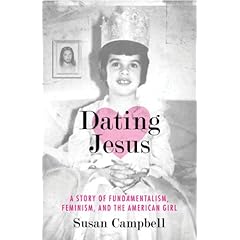 On the heels of Gwen and Tonni’s awesomely informative post-inaugural post on religion, I’m thrilled to bring you this Q&A by GWP reader-now-contributor Allison McCarthy, a graduate of Goucher College who was recently accepted into the Master of Professional Writing program at Chatham University. Allison’s work has previously been published or is forthcoming in magazines such as The Baltimore Review, JMWW, Girlistic, Scribble, Dark Sky, and The Write-Side Up. Winner of the 2007 Maryland Writers Association Short Works Contest, she is currently a features and profiles writer for ColorsNW. Here she is! -Deborah
On the heels of Gwen and Tonni’s awesomely informative post-inaugural post on religion, I’m thrilled to bring you this Q&A by GWP reader-now-contributor Allison McCarthy, a graduate of Goucher College who was recently accepted into the Master of Professional Writing program at Chatham University. Allison’s work has previously been published or is forthcoming in magazines such as The Baltimore Review, JMWW, Girlistic, Scribble, Dark Sky, and The Write-Side Up. Winner of the 2007 Maryland Writers Association Short Works Contest, she is currently a features and profiles writer for ColorsNW. Here she is! -Deborah
Susan Campbell, 49, is a journalist for the Hartford Courant, the oldest continuously published newspaper in the U.S. and author of Dating Jesus: A Story of Fundamentalism, Feminism, and the American Girl. The book, published by Beacon Press in January 2009, uses humor, history, and memory to great effect in relating the author’s personal evolution of faith and politics. She currently lives in Connecticut with her family and sometimes feels mortified that she wrote a memoir, which she says is a “vain thing to do,†and then has to talk about the memoir, thus rendering her “doubly-vain.â€Â Campbell recently spoke to Girl With Pen about her experiences with writing, feminism, and her ever-contentious relationship with Christianity.
GWP: How did you come up with the title Dating Jesus? Were there other working titles attached to this project?
SC: It went for a long time without a title at all – I’ve never been able to write a headline and I suck at titles. I don’t get a lot of great thoughts in the middle of the night, but I woke up laughing because it was almost like I was dating a boyfriend that I didn’t like very much. The Jesus I was introduced to as a girl wasn’t very human; he was very judgmental and unhappy, fairly sanitized, and in retrospect he mimicked a lot of the adults around me. He wasn’t very radical at all and this is not a person I would get along with much as a friend, let alone a boyfriend or someone I would worship. But I tried to hammer myself into that box, anyway.
GWP: You include a lot of footnotes, which seems to be very popular among post-modern memoirists. What was the significance of this literary device in your novel?
SC: As a trained fundamentalist, you have to back up everything you say with Scripture. You have to have supporting documentation. I knew this was going to be read by people like me who want proof. It became a verbal tic and I couldn’t quit doing it! I thought I stole this technique from a memoir about the family who came up with Sweet and Low. The footnotes in that book were often as funny as was what came in the text. Originally, my intent was pure, but I found it was great fun to put these irreverent footnotes in. I don’t think of myself as irreverent, but that’s what I’ve been told it is, so I’m going to stick with that.
GWP: In the book, you mention the role of Elizabeth Cady Stanton in criticizing the gendered roles of contemporary Christianity. What other feminists influenced your eventual shift from fundamentalism? Do you currently identify with any communities of feminism?
SC: When I was growing up, the only feminist I knew was Gloria Steinem and I only knew what I read in the media. I was a fairly wide reader. I eventually met her and tried on her aviator glasses. I read Betty Freidan and as a young woman, I thought she made a lot of sense. I knew enough at that age not to identify myself as a feminist because it was a dirty word. The stereotype is so silly. I studied Womanism at Hartford Seminary. I think that some critics of mainstream feminists complained that it’s a movement for white, middle-class women and it overlooks the challenges faced by other demographics. That’s a valid critique and I think even the early feminists who sprang from the abolitionist movement were women of leisure who had the time and money to devote to this very important cause, but were also looking particularly at their own lives and not necessarily to women on a different socioeconomic rung. At this point, I don’t know what school of feminism I would say I belong to. I’m a feminist, but I’m uniquely aware that the movement as a whole has sometimes not paid enough attention to everybody. I think there have been time periods where a lot of people left off the bus.

